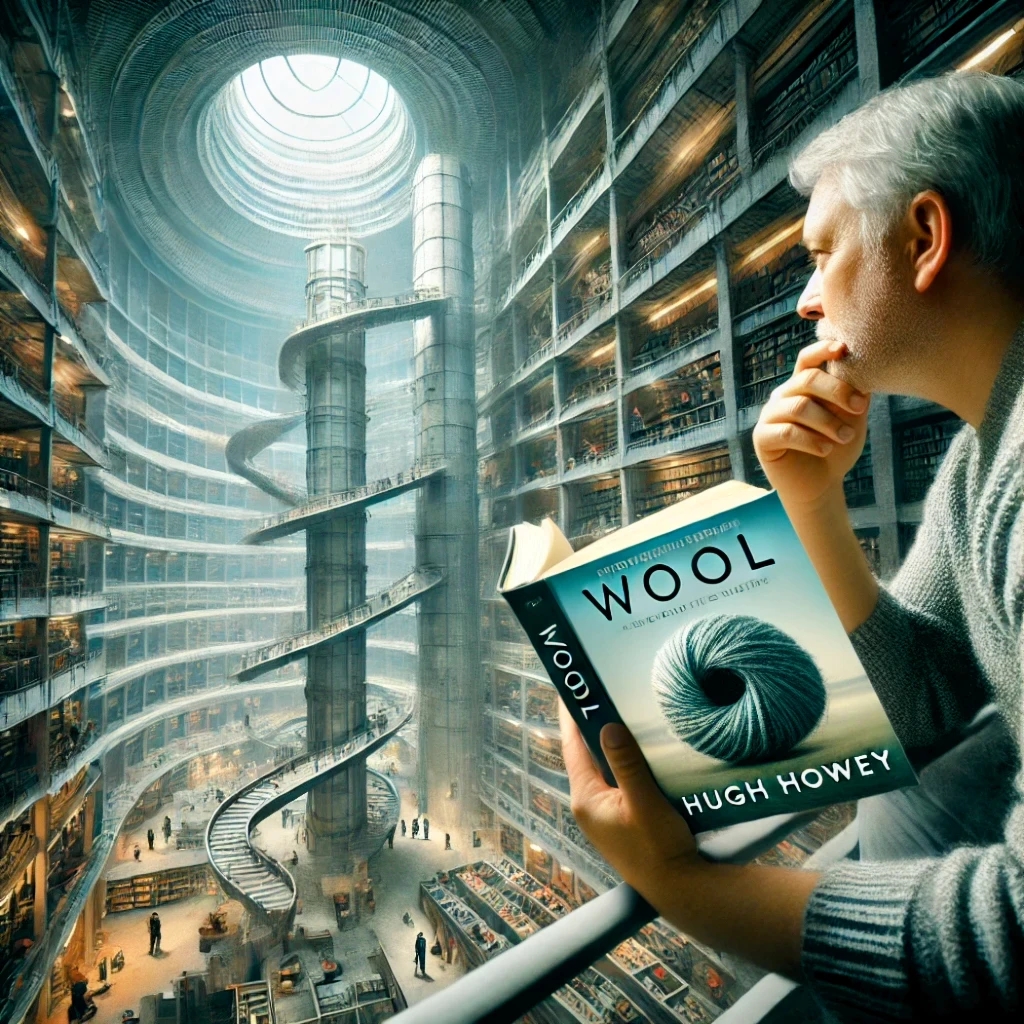"Yes it talks about that, read the other books" A review of Wool by Hugh Howey

Preface: While this review doesn’t reveal detailed story elements, readers that want the maximum amount of surprise should read the book first. This review incorporates information from the second and third Silo series books which were read by many of the HPS members. This review was ~60% written by copilot
"Wool" by Hugh Howey is a captivating science fiction novella that immerses readers in a post-apocalyptic world where humanity clings to survival within underground silos.
Many readers appreciate the deliberate pacing in Howey's storytelling. He masterfully unravels the silo's secrets, layer by layer, creating suspense and leaving readers hungry for more. The gradual reveal mirrors the confined existence of the characters, emphasizing their isolation. However, some find the pacing too deliberate—akin to a slow-burning TV series—unfolding methodically, which might not suit all tastes. For those seeking rapid action, this deliberate approach could feel frustrating.
The novel's episodic structure, reminiscent of TV seasons, adds anticipation. Each section feels like an episode, complete with cliffhangers. Yet pacing designed for TV doesn't always translate seamlessly to literature.
"Wool" introduces us to the silo—a vast underground structure where humanity survives. However, the series expands this world. Each subsequent book peels back more layers, revealing additional silos, their histories, and an intricate web of secrets.
While "Wool" stands alone as a gripping novella, the series transcends individual books, becoming a saga—a literary journey. Threads initiated in "Wool" weave through the series. Characters reappear, mysteries deepen, and the stakes escalate.
Books 2 and 3—"Shift" and "Dust"—provide crucial context. They reveal the origins of the silos, the truth behind their existence, and the broader world beyond.
Hugh Howey masterfully weaves a tapestry of moral dilemmas. Initially, the focus lies on collective beliefs within the silos—how shared narratives shape behavior and maintain order. However, as the series unfolds, it delves into other profound questions:
-
Secrecy and Knowledge: The silos operate under strict guidelines to prevent knowledge of the outside world from being revealed. Is it ethical to withhold information from the inhabitants for their own survival?
-
Ethics in Governance: The authoritarian regime raises questions about manipulation of information and concentration of power.
-
Power Struggles: As the silos function independently, power dynamics emerge within each community. How do leaders maintain control, and at what cost?
These layered moral quandaries make the series a captivating exploration of humanity's choices in dire circumstances.
Hugh Howey's captivating science fiction novella, 'Wool,' immerses readers in a post-apocalyptic world where humanity clings to survival within underground silos. The deliberate pacing, which gradually unravels the silo's secrets, creates suspense and mirrors the characters' isolated existence. While the episodic structure adds anticipation, the series expands beyond the novella, revealing additional silos and their intricate histories. Howey's exploration of moral dilemmas—such as secrecy, governance ethics, and power struggles—makes this saga a thought-provoking literary journey.
